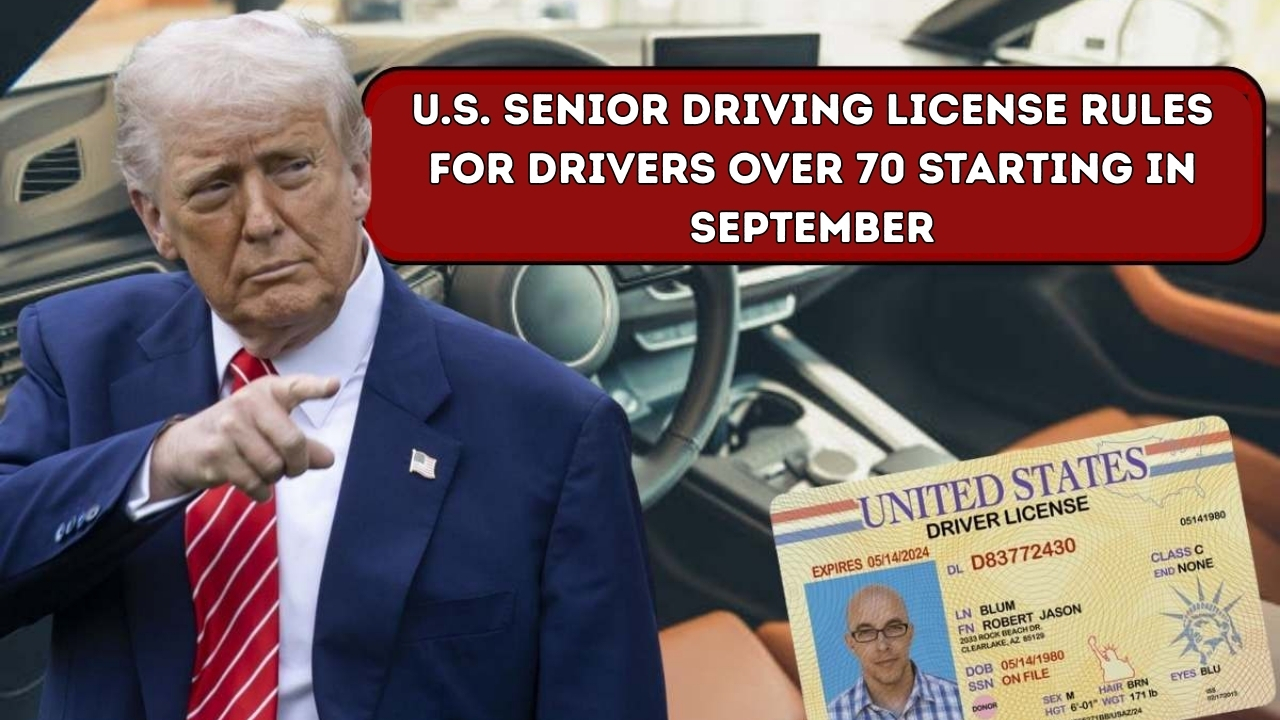Starting in September 2025, American motorists aged 70 and older will be subjected to new regulations concerning the acquisition and upkeep of their driver’s licenses. Earlier this year, the U.S. Department of Transportation, in collaboration with some state motor vehicle agencies, proposed changes aimed at providing a middle ground between safety and the independence of senior citizens. This has been spurred by a persistent public controversy, highlighting whether the existing licensing policies take adequately into consideration age-related factors such as declining reflexes, eyesight, and overall health that could impact driving safety.
In-Person Renewal Requirement
One of the key changes mandates that all seniors above the age of 70 must renew their driver’s license in person, as opposed to online or via mail. This change ensures that critical checks such as vision, hearing, and general health screenings are conducted for every renewal. Authorities state that this policy is not aimed at older drivers, but is intended to promote uniform driving safety and attempt to avoid road incidents.Across all states, motor vehicle departments are now required to ask the elderly to submit a verifiable medical assessment and participate in vision tests to be qualified for license issuance or renewal.
Reduced Period of License Validity
In relation to younger drivers, who may have their licenses renewed every eight to ten years depending on state regulations, older seniors will now be granted a license for a validity period of three to five years.Health and wellness assessments and eligibility checks along with their respective driving standards evaluations can now be done within this new scheduled and significantly shorter time frame.
Road Tests for High-Risk Cases
Equally important is the new policy that provides for conditional driving tests for some applicants. In the case of a senior driver, if his or her medical evaluations or driving records indicate a disproportionate risk, such as a higher number of crashes or driving injuries, a history of aggressive driving with speeding, or significant health concerns, the driver may be subject to a limited road test for skills under the seniors driver’s license renewal. Although some advocacy groups for the elderly are concerned with this policy, officials from the transport department maintain that the tests will not be compulsory for the majority of drivers, only those identified by health or safety risk flags.
Balancing Safety with Independence
Public reaction to the new mobility rules have been mixed. Road safety advocates support the rules, citing studies that show elderly drivers are more susceptible to becoming involved in serious crashes. In contrast, advocates for senior citizens argue that the new rules may curb the mobility of older Americans, especially those living in the outskirts of cities and rural areas with limited public transport.Officials stand by their notion that there is a middle ground to be reached. “Balanced mobility for older Americans, as well as safety for senior drivers and the general public, is our priority,” the agency representative stated at the press briefing.
Support Measures for Seniors
To better assist older drivers, some states offer refresher driving classes that emphasize the most current legislation, safe driving, and defensive driving. Furthermore, some states will permit seniors to voluntarily surrender their licenses due to health restrictions and still access transport assistance programs and discounted ride-share services.



